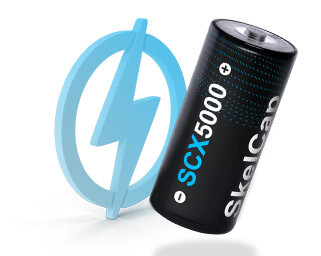
Conceptual Potential of Batteries vs Ultracapacitors

Improvement potential, limitations of the technology - these are things we face all the time. How do we know the research being done still makes sense? Is there a way to find out how much a process, a technology, a concept, or a technical solution can improve?
When do we decide the concept must radically change? When is a technology mature or at the end of the road?
For instance, when airplanes first flew, there were no restrictions as to how many wings (or planes as they were described then) they should have. If a plane needed 12 engines, it was fine, as long as it still could fly. The Red Baron had a Fokker triplane aircraft during the 1st World War. Then aircraft general arrangement stabilised around the monoplane concept to reduce drag and increase efficiency, engine numbers reduced to 4 for large aircraft and 2 or one for smaller ones.
More interesting things happened with the advent of the jet engine, but the cigar-shaped fuselage and the swept-back wings are and will remain with us for some time, until an aerospace company decides to bite the bullet and go for a blended wing design when the current configuration will have reached its conceptual limit.
So, to come back to batteries, we have experienced a research boom during the 1980-2010 period, where energy densities have increased immensely.
NiCd, Nickel-Cadmium or "Nicad" batteries have conceded the spotlight to Lithium-ion (Li-Ion) batteries not without risk. Li-Ion batteries can overrun and set themselves on fire. This is why Airbus, for the A350, decided to revert to NiCd batteries for their aircraft since the grounding of the Boeing Dreamliners during early 2013.
Radical conceptual change is risky - to some degree.
But now this seems to be tapering. In fact, from 1995 to 2007, the energy stored in a battery has doubled, but since then it hasn't even risen by 30 percent. Have batteries reached their conceptual limits? Should other ideas be explored?
In this field, as with many others: "If you don't move forward - you are going backwards". The progress in battery technology seems to turn towards peak load handling, lifetime, and re-charge cycle shortening.
However, ultracapacitors are still in the thick of their research phase. From their humble beginnings in a GE lab back in the 1950s to today, there have been massive improvements in power and energy density. Today, the improvements are such that in some cases, public transport vehicles such as the Capabus runs from the power of ultracapacitors alone-
Granted, this is only over half a dozen kilometers before a recharge but if you look over 1 million cycles - that is potentially 6 million km at 30 km/h, that would take 22 years to do - 24/7! This is only the start as there is still much potential for energy density increase that is untapped.





